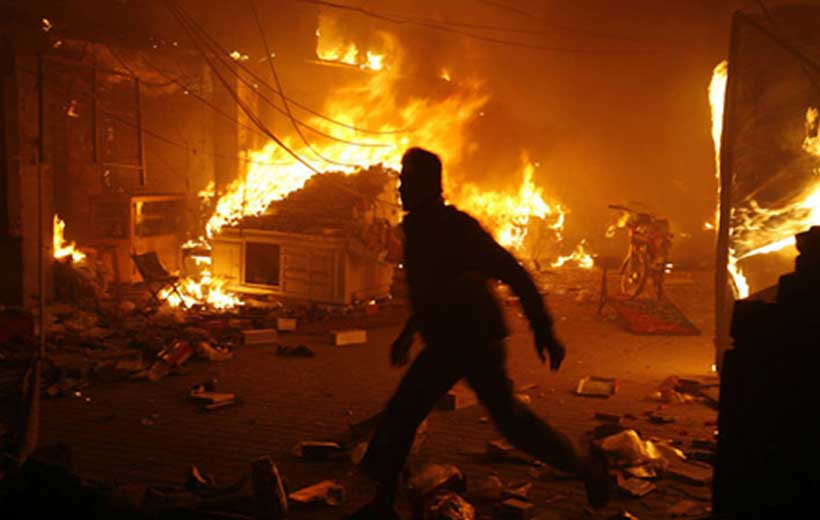Authors: Tridivesh Singh Maini and Varundeep Singh*
On July 14, 2021 a terror attack was carried out in Khyber Pakhtunkhwa (KPK) province in which a number of Chinese engineers, working on the Dasu hydropower project (a project which is part of the China Pakistan Economic Corridor) were killed. The attack predictably evinced a strong response from China. The Chinese foreign minister, Wang Yi speaking before a Shanghai Cooperation Organisation (SCO) Foreign Minister’s meeting asked the Taliban to disassociate itself from ‘terrorist elements’ and in a meeting with Pakistan Foreign Minister, Shah Mehmood Qureshi, asked Pakistan to bring the perpetrators to book. Earlier in April 2021, a car bomb attack took place at Serena hotel in Quetta which was hosting China’s Ambassador to Pakistan (four people were killed and twelve were injured)
Wang Yi significantly praised the Ashraf Ghani government, for its attempts towards building national unity and providing effective governance. Beijing clearly realizes that its economic investments in the country as well as big ticket infrastructural projects can not remain safe if there is no security. Afghanistan also criticized Pakistan for its role in sending 10000 Jihadis to Taliban, this is important in the context of the region’s geopolitics.
Like all other countries, Beijing and Islamabad, would have expected uncertainty after the US withdrawal of troops but perhaps over estimated their capabilities in dealing with the turbulence which had been predicted by many.
Importance of Chinese Foreign Minister’s statements
Wang Yi’s statements are important because days earlier a Taliban spokesman, Suhail Shaheen had praised China and welcomed its role in the country’s reconstruction. He had also assured China that those involved in the insurgency in Xinjiang would not be given refuge in Afghanistan (one of China’s major concerns has been the support provided by Taliban to the East Turkmenistan movement)
While Beijing may have opened back channels with the Taliban and realized that it needs to adapt to the changing geopolitics, recent developments would have increased its skepticism vis-à-vis the Taliban. On the other hand, Russia has been more favorable towards the Taliban. Russia’s Deputy Chief of Mission in India, Roman Babushkin argued that the Taliban are a reality which needs to be accepted, and also that any military activities without a political process are insufficient.
Babushkin did make the point that for successful negotiations, Taliban needed to end violence.
‘that Taliban should deal with the problem of terrorism and other related issues in order to become legitimate, in order to [get] delisted [at the UN Security Council], in order to go ahead with the future Afghanistan and creation of the inclusive government
It would be pertinent to point out, that Zamir Kabulov, Russian President’s Afghanistan envoy went a step further and said that the Afghan government was not doing enough to make talks with Taliban a success.
China’s statements subtle warning to the Taliban, indicating its reservations, and praise of Ghani indicate a possibility of greater understanding between Washington and Beijing (even though Beijing has repeatedly attributed the current troubles in Afghanistan to Washington’s decision to withdraw troops).
Can US and China find common ground
It remains to be seen if Biden who has exhibited dexterity on a number of complex issues reaches out to Xi Jinping to find common ground with regard to Afghanistan. Significantly, while US-Turkey relations had witnessed a downward trajectory and Biden has been critical of Turkish President Recep Tayyip Erdogan’s authoritarian tendencies and Human rights record, both leaders met on the sidelines of the NATO Summit in June 2021. During the meeting Turkey agreed to secure Kabul Airport. US National Security Advisor Jake Sullivan while commenting on Turkey’s assurance said
‘The clear commitment from the leaders was established that Turkey would play a lead role in securing Hamid Karzai International Airport, and we are now working through how to execute to get to that,’
Taliban earlier this week warned Turkey of ‘consequences’ if the Middle Eastern nation increased its troop presence in Afghanistan.
Conclusion
Russia’s statements with regard to the Taliban indicate that it is not totally on the same page as China (its prior experience in Afghanistan has made it more cautious and circumspect), and that the Afghan issue can not be understood from the simplistic lens of geo-political blocs and traditional lenses. All major stakeholders in Afghanistan, both within the region and outside, seem to be understandably befuddled by the turn of events. It is not just the US, but even China which would be worried not just from an economic stand point but the overall security implications of the turmoil in Afghanistan. The terror attack in KPK indicates that other CPEC related projects could also face threats from militant groups. Beijing would thus need to be quick to react to the overtures from the Taliban in order to secure its economic assets and lives of Chinese workers in neighbouring Pakistan.
It is especially important for Washington, Beijing and other important stakeholders in the region to work together for dealing with the near term turbulence as well as long term challenges Afghanistan is likely to face.
*Varundeep Singh is an Independent Policy Analyst.


